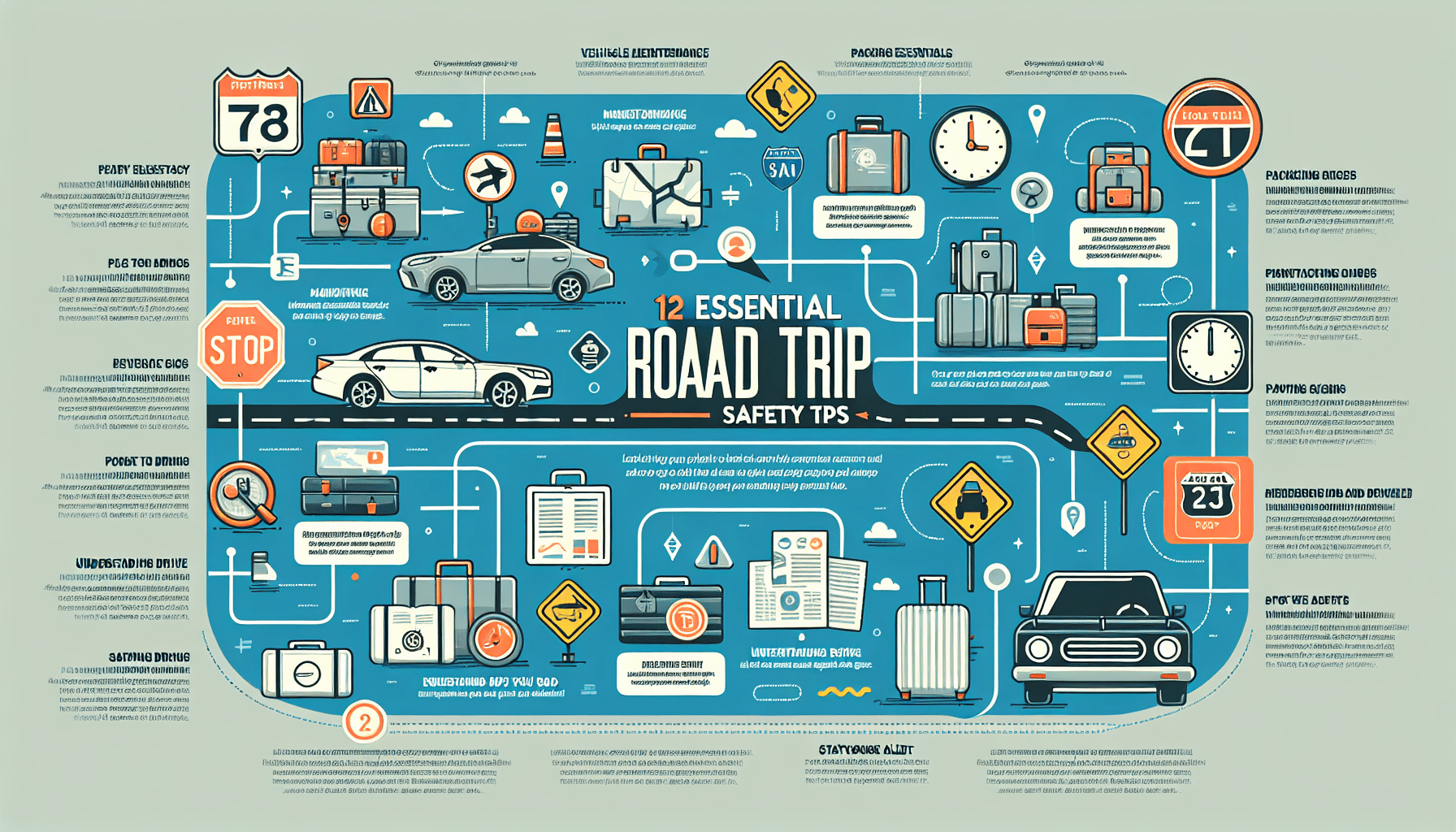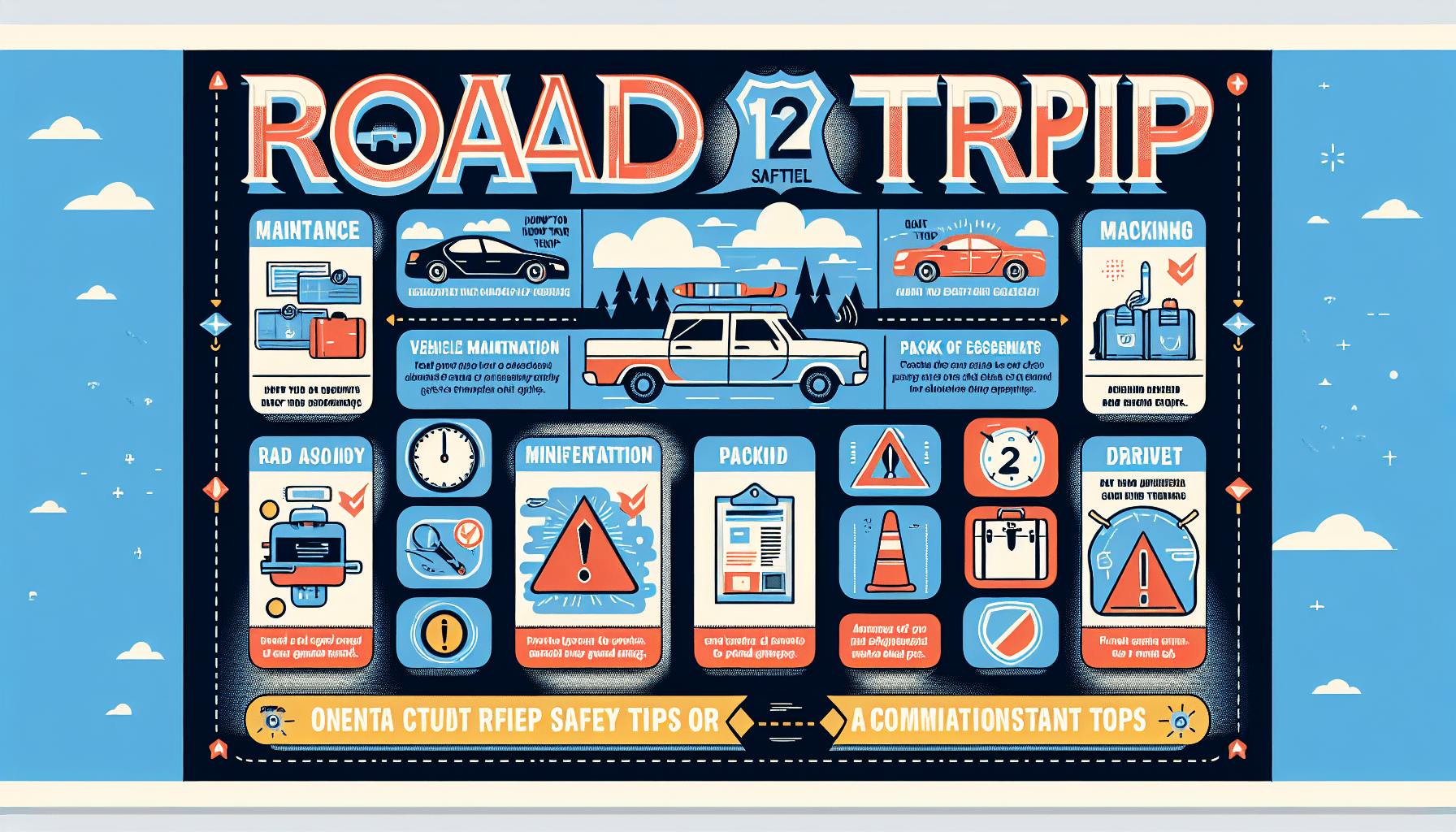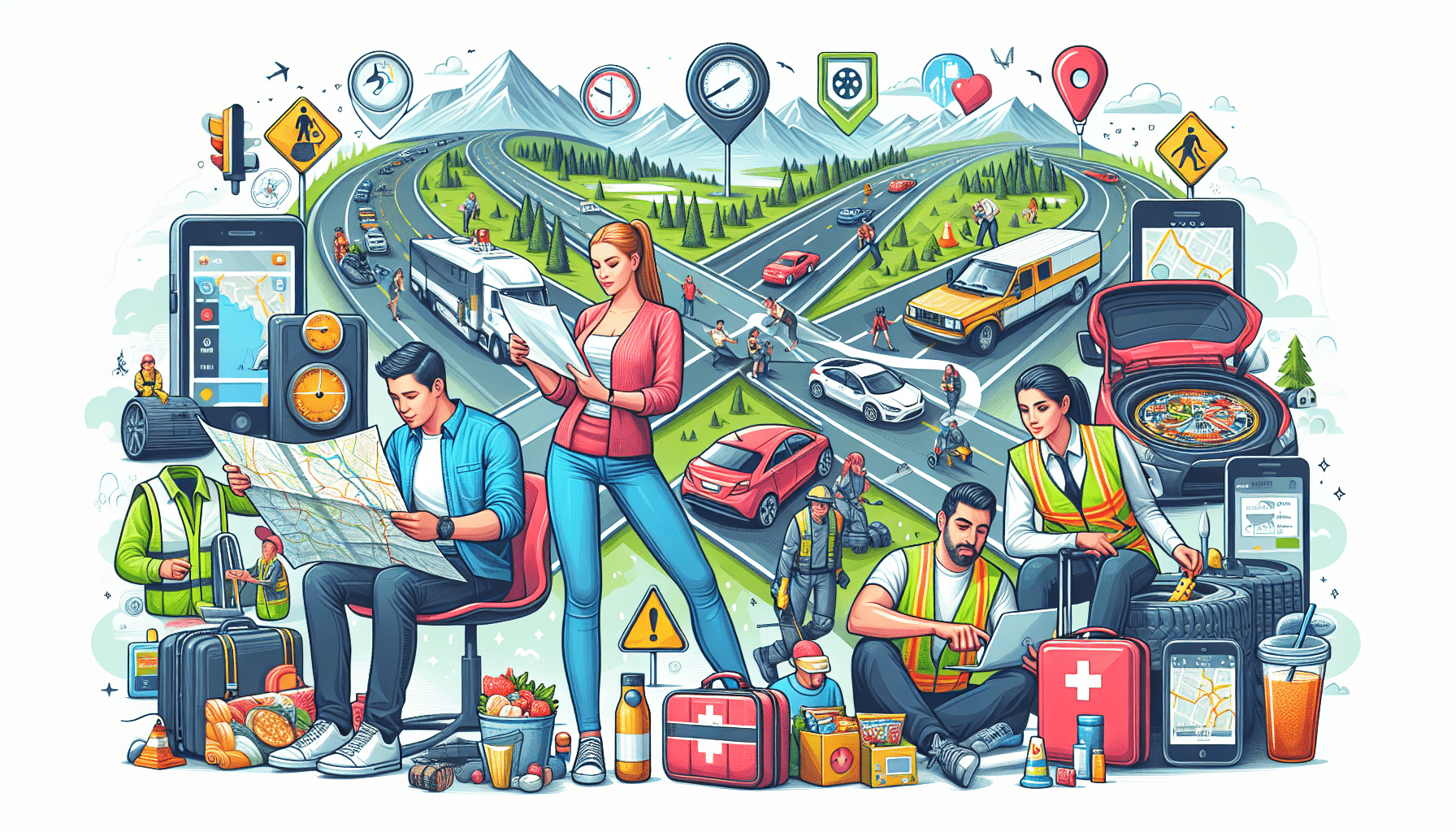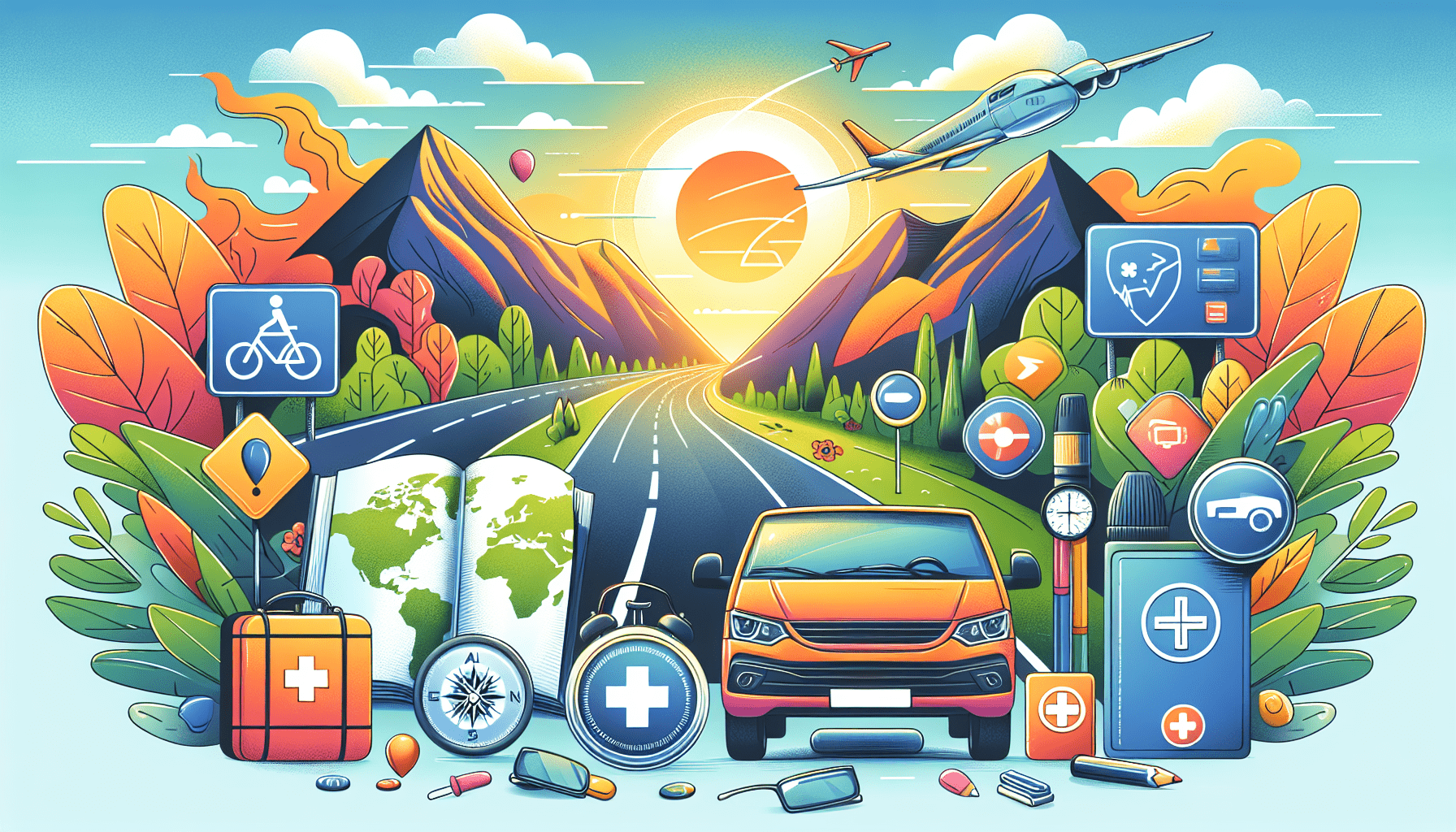SwissGear Sion Softside Expandable Luggage, Black, Carry-On 21-Inch
$80.73 (as of November 20, 2024 15:23 GMT +00:00 - More infoProduct prices and availability are accurate as of the date/time indicated and are subject to change. Any price and availability information displayed on [relevant Amazon Site(s), as applicable] at the time of purchase will apply to the purchase of this product.)Embarking on a road trip is an exciting adventure filled with beautiful views and unforgettable experiences. However, prioritizing safety is essential to ensure a smooth and enjoyable journey for everyone involved. To help you stay safe on your next road trip, we have compiled twelve road trip safety tips. From vehicle maintenance and emergency kits to planning your route and staying hydrated, these tips will ensure that you are well-prepared for any unexpected situations that may arise. By following these tips, you can make the most of your road trip and create lasting memories.

Vehicle maintenance
Before setting out on your road trip, make sure your vehicle is in optimal condition. According to Marcus Newton of LeMans Motors and Bosch Service Brisbane, ensuring your vehicle is maintained before heading out on a road trip is vitally important. “Make sure your vehicle’s tires are in good condition and properly inflated,” he advises. “Check all fluid levels, including oil, coolant, brake and power steering fluids”. Scheduling a pre-trip inspection with a mechanic can be handy as it allows any potential issues to be addressed, minimizing the risk of breakdowns.
Emergency kit
Prepare a well-stocked emergency kit that includes essentials such as a first aid kit, flashlight, blankets, non-perishable snacks, water, jumper cables, and basic tools. You never know when you might encounter unexpected situations like car trouble or getting stranded on the road. Having an emergency kit on hand can be crucial in unexpected situations, helping you deal with a myriad of scenarios until assistance arrives.
Plan your route
Plan your route in advance and share it with someone you trust. Utilize GPS or navigation apps to stay informed about road conditions, construction zones, and traffic updates. Be open to alternative routes to avoid potential delays or hazards. Planning out your route beforehand can help you avoid getting lost or stranded in unfamiliar areas. A GPS or map can also be used to plan out rest areas and fuel stops, ensuring a smooth journey.
Rest stops and breaks
Driving for extended periods can lead to fatigue, affecting your reaction time and concentration. Take regular breaks to stretch your legs, grab a snack, and rest. Plan your itinerary with designated rest stops to ensure you stay alert behind the wheel. If you’re feeling tired, it’s always better to pull over and take a nap than risk an accident. Taking breaks also allows you to appreciate the scenery, rather than just rushing to reach your destination.

Drive safe
Always prioritize safety while driving on a road trip. Stay alert and avoid distractions like using your phone or changing music frequently. It may help to switch your phone notifications off or have a pre-designed playlist to limit the temptation to check your phone. Make sure you also have enough rest before embarking on a long road trip to ensure you are well-rested and alert behind the wheel. Follow traffic rules, maintain a safe speed, and stay vigilant for potential hazards.
Emergency contacts
Before you set off on your journey, make sure you have emergency contacts saved on your phone or written down somewhere easily accessible. This could include the number for roadside assistance, local authorities, and a trusted family member or friend who can assist in case of an emergency. Having these numbers readily available can be crucial in case of unexpected situations while on the road.

Buckle up
Seat belts save lives, so make sure everyone in the vehicle is properly restrained. Ensure that children are in appropriate car seats or booster seats according to their age, height, and weight. If you are traveling with pets, make sure they are properly restrained as well to ensure their safety and prevent any distractions while driving.
Stay hydrated and snack smart
Dehydration can contribute to fatigue, so it’s essential to stay hydrated during the journey. Pack a cooler with water and healthy snacks to maintain your energy levels. Avoid excessive caffeine and sugary snacks, as they may lead to energy crashes. For longer journeys, make sure to take regular breaks to stretch your legs and refuel with nutritious meals, rather than relying on snacks.

Weather preparedness
Check the weather forecast for your route and destination before you head off on your adventure. Be prepared for varying conditions by packing appropriate clothing and supplies. Adjust your driving speed and style to match the weather, and in extreme conditions, consider delaying your trip if possible. It’s always better to err on the side of caution and safety.
Drive defensively
Practice defensive driving by staying alert, avoiding distractions, and anticipating the actions of other drivers. Maintain a safe following distance, obey traffic laws, and be cautious in unfamiliar areas. It’s also important to be aware of your surroundings and potential hazards, such as construction zones or wildlife crossings.
By incorporating these road trip safety tips into your travel plans, you can help ensure a smooth and secure journey. Prioritizing vehicle maintenance, planning your route, and staying vigilant on the road will contribute to a positive and enjoyable road trip experience.






